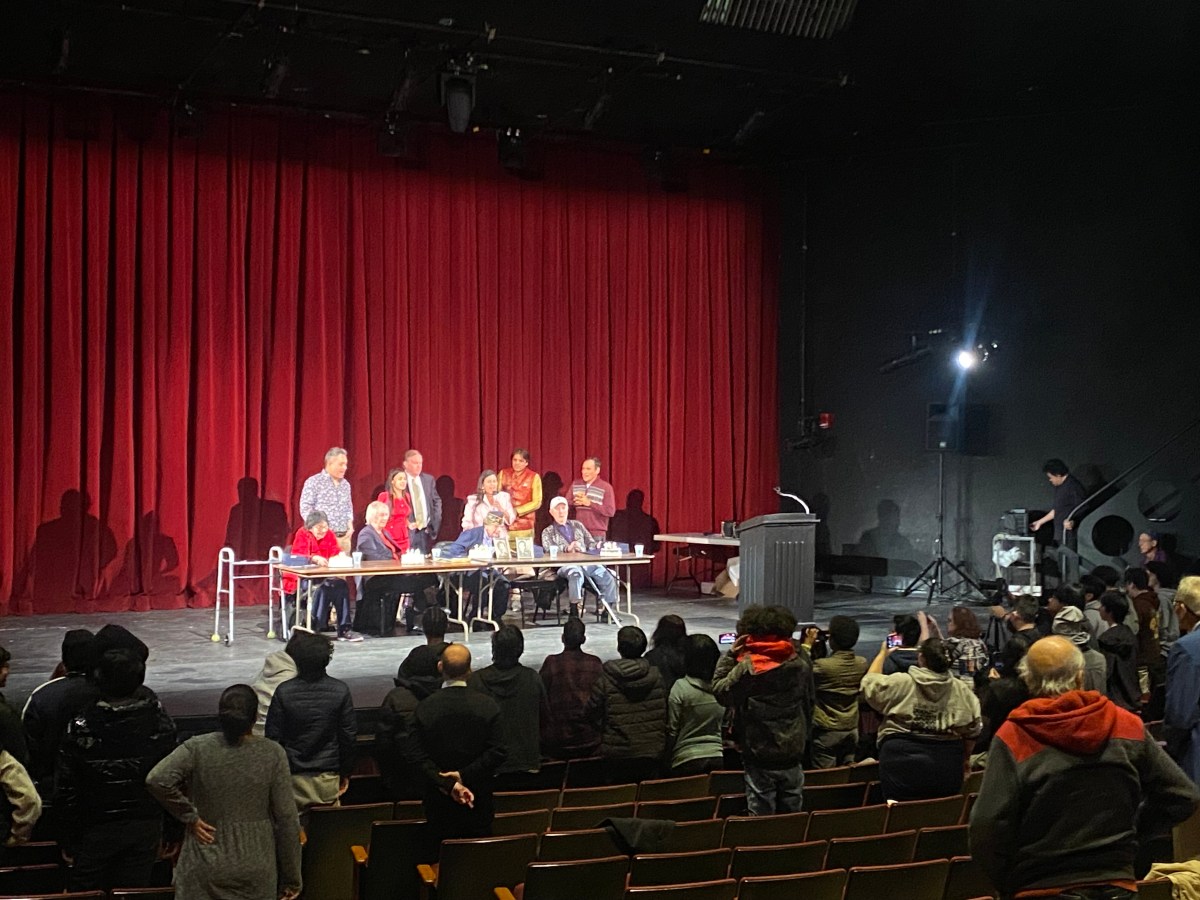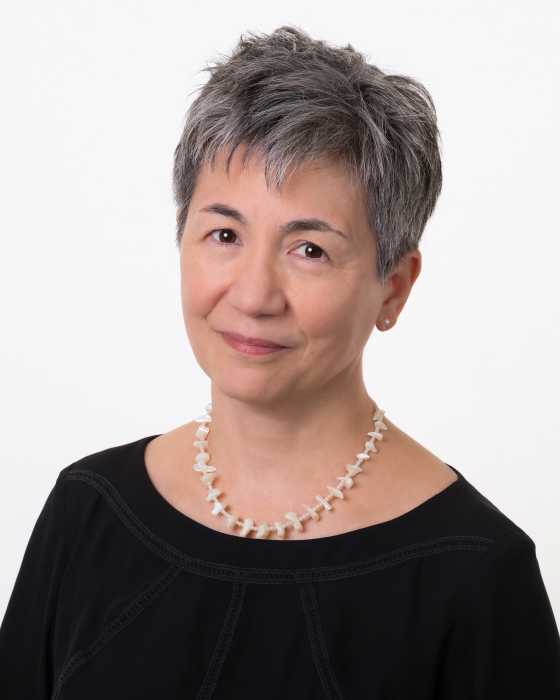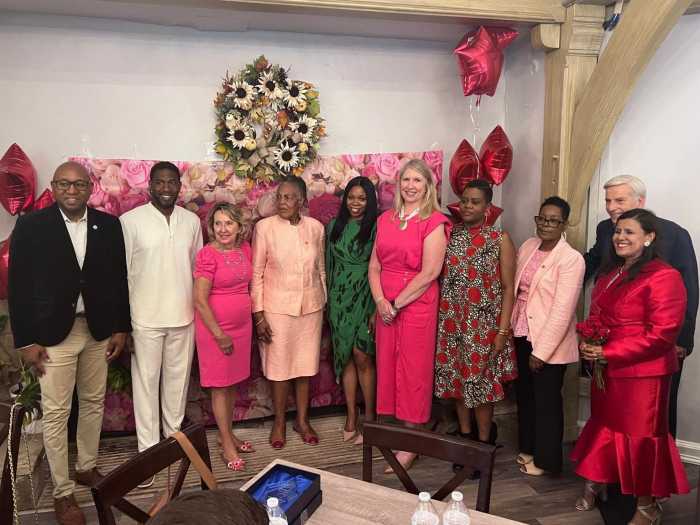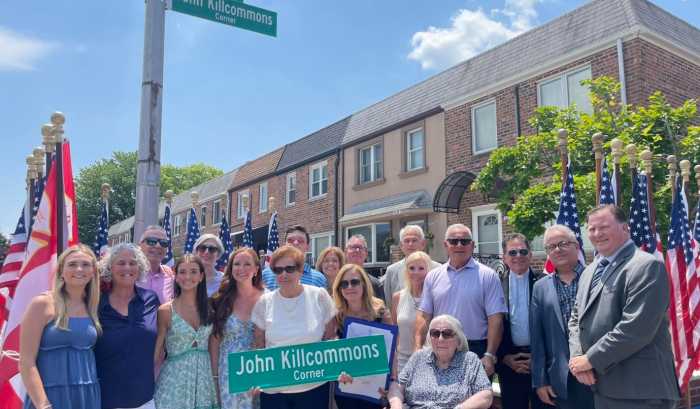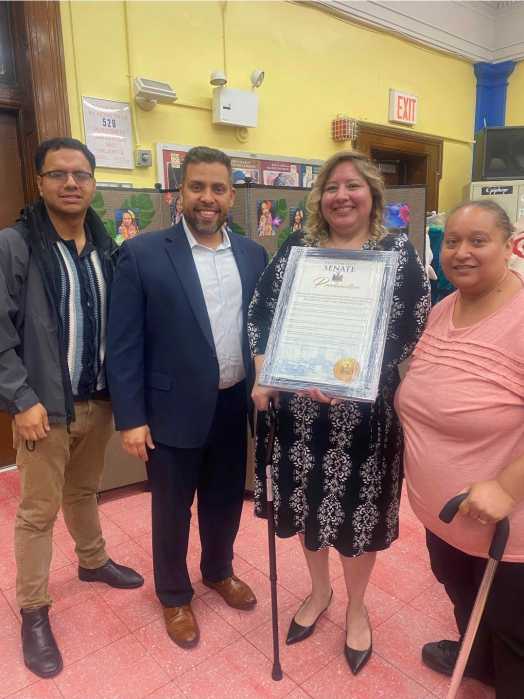The Arts4all Foundation hosted a commemoration event at Queens College in Flushing, on Tuesday, Dec. 10, to mark the 76th anniversary of Human Rights Day and First Lady Eleanor Roosevelt’s 140th birthday.
Anna Eleanor Fierst, the former First Lady’s great-granddaughter, attended the event to speak about her family’s legacy in human rights. Joining her on the stage were two Holocaust survivors, Leon Sherman and Inge Auerbacher, and May Brill, a 100-year-old Navy Veteran and Chairperson of New Jersey’s Women in the Military.
First Lady Eleanor Roosevelt, the first Chairperson of the United Nations Commission on Human Rights, was instrumental in drafting and ensuring the United Nations adopted the Universal Declaration of Human Rights (UDHR) in 1948 at the end of World War II.
Now, 76 years later, her great-granddaughter had the opportunity to share stories with high-school students in Queens, members of the public, and elected officials.
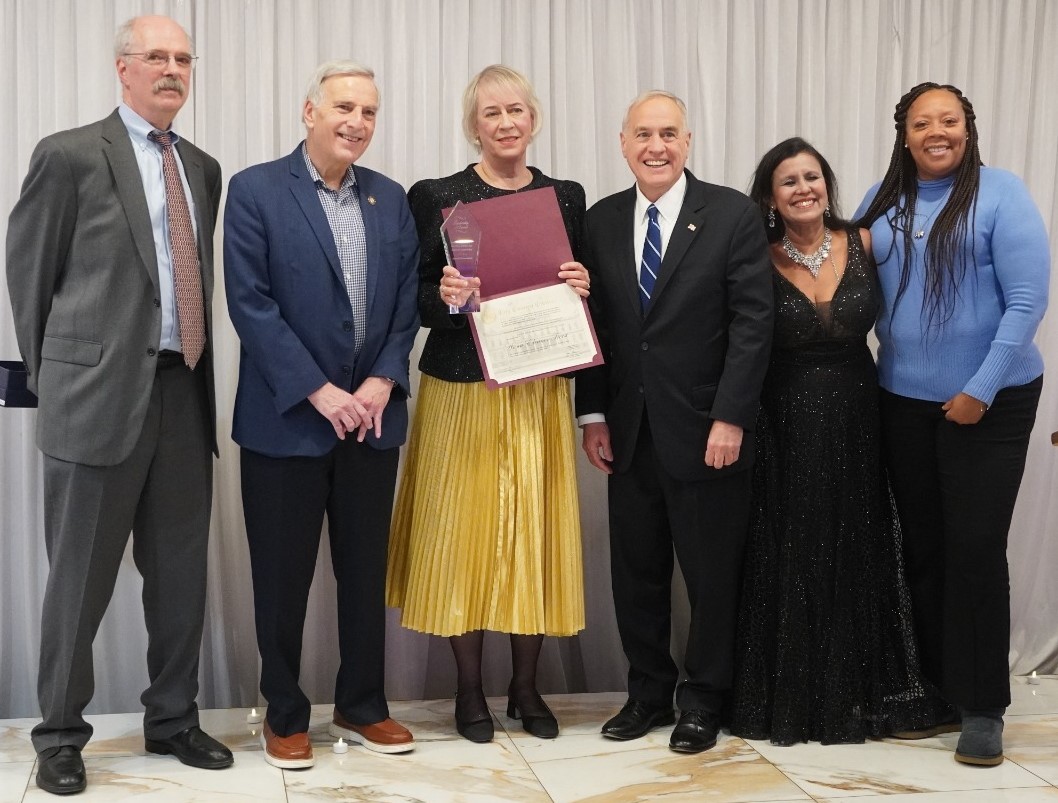
Fierst spoke about many articles written into the UDHR and how some are still relevant all over the world and in the United States today. She explained Roosevelt’s origins as an activist through her role as First Lady, as she traveled across the country from penitentiaries to hospitals and her involvement in the civil rights movement.
In the 1930’s, Roosevelt faced backlash for her various ventures as she continued to ‘look for what was wrong in the world and try to fix it.’ Some people at the time believed it wasn’t what a First Lady should be doing.
Fierst explained that Roosevelt received around 300,000 letters a year in the White House and attempted to answer 50 a day.
“It was a time of the Great Depression, and she would receive a lot of pleas. Children and teens would write to her and explain their poverty without their parent’s knowledge. It was looked down on to go to the First Lady and disclose your problems,” Fierst explained.
Her work with the UDHR is everlasting. Since its creation, it has been translated into 150 different languages for worldwide use. The milestone document was created after World War II and adopted by the UN to enshrine the rights and freedoms of all human beings.
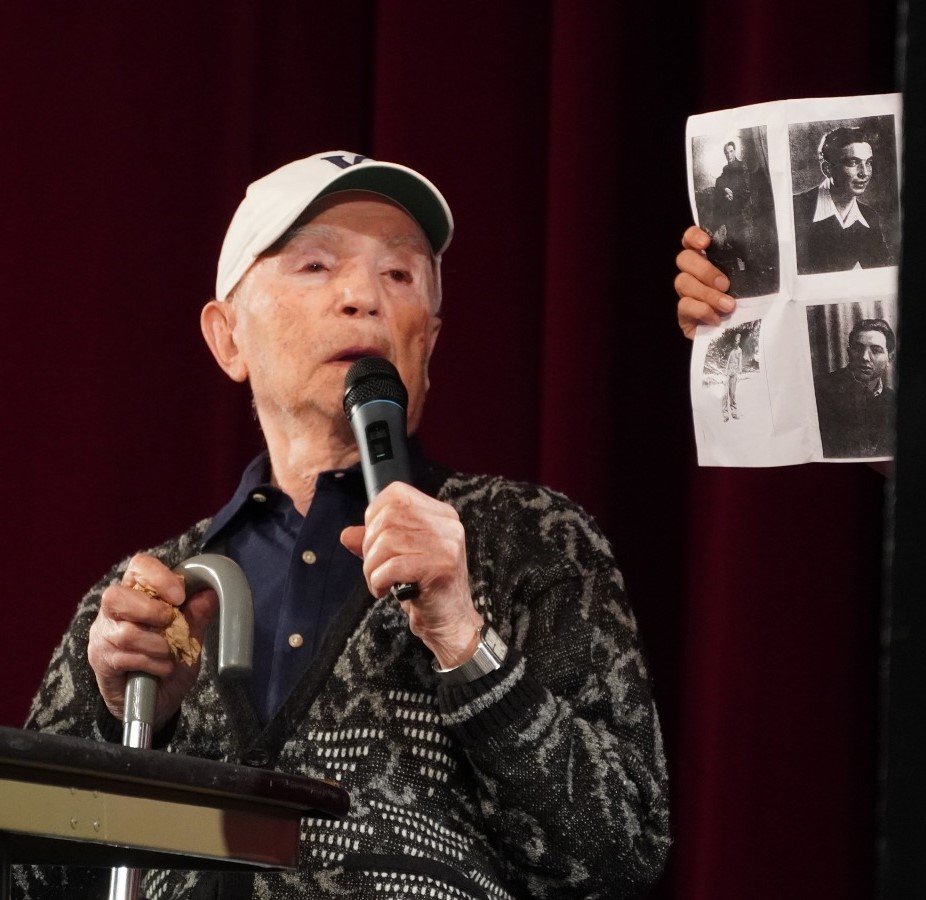
Leon Sherman, a 105-year-old Polish man, was taken to five different concentration camps during the war, including the likes of Auschwitz and Dachau. He spoke to the auditorium about how he was made to work as a laborer at these camps, which he explained is the reason he wasn’t killed alongside so many others.
Sherman spoke about the horrors he witnessed firsthand throughout the war before he was liberated in 1945. He explained how he had to work in crematoriums and witness children being pushed into ‘fire pits’ in the camps.
Sherman described how his fellow prisoners were taken out and shot every day and how in Auschwitz, they were killed in gas chambers. He told the room how the prisoners were branded with a number to ensure they couldn’t escape, which he still has on his arm.
He described the conditions as ‘unimaginable,’ with prisoners left severely malnourished, but miraculously, he survived. Now, Sherman lives in Rego Park in Queens and, even at the age of 105, continues to travel to spread a message of peace and educate young people on the tragic history of this time.
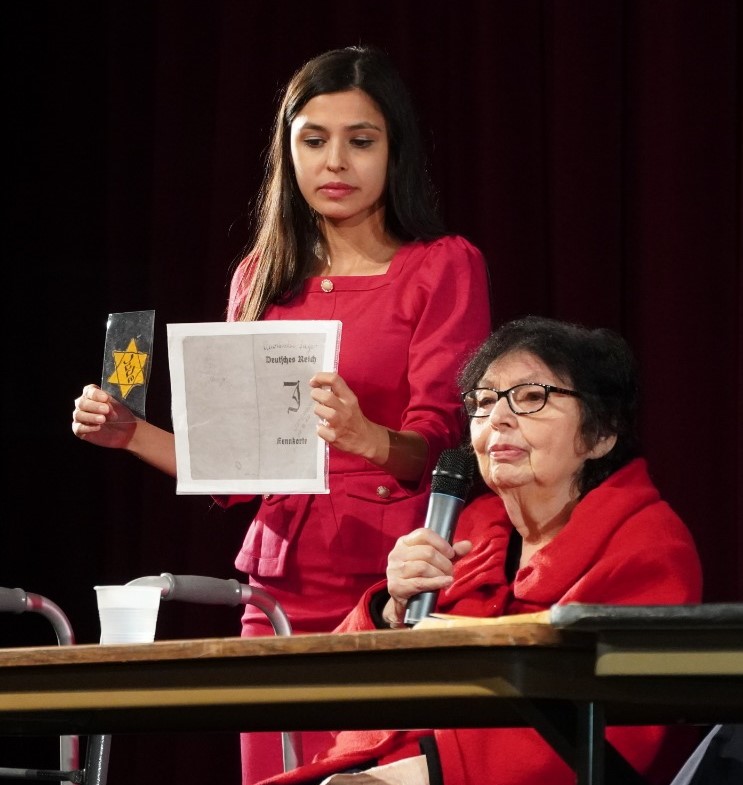
As another Holocaust survivor, Inge Auerbacher was able to share similar stories to the auditorium. Born in Germany, Auerbacher and her family were taken to a concentration camp when she was just seven years old. She explained how many of her friends were killed, and she was very sick.
“I was the youngest in our transport of about 1,100 people, and just a few survived. I was lucky that I wasn’t sent to Auschwitz, or I wouldn’t be here today,” she said.
She showed the room a wooden star she was forced to wear around her neck for about four years in the camp. It had “Jew” inscribed on it, in German.
“It made me feel like I was a terrible person, like I was worth nothing. So in my life afterward, I had to work very hard to feel like a human being, to feel like I was somebody,” she added.
She expressed her gratitude to the Russian general who liberated her camp and explained how she visited his grave to leave flowers, as well as President Truman’s grave.
Auerbacher left Germany after the war and moved to Queens. She majored in chemistry at Queens College and has written six books. She has been back to the camps many times since the war and has spoken at events at the United Nations and the German Parliament. Auerbacher turns 90 on December 31.
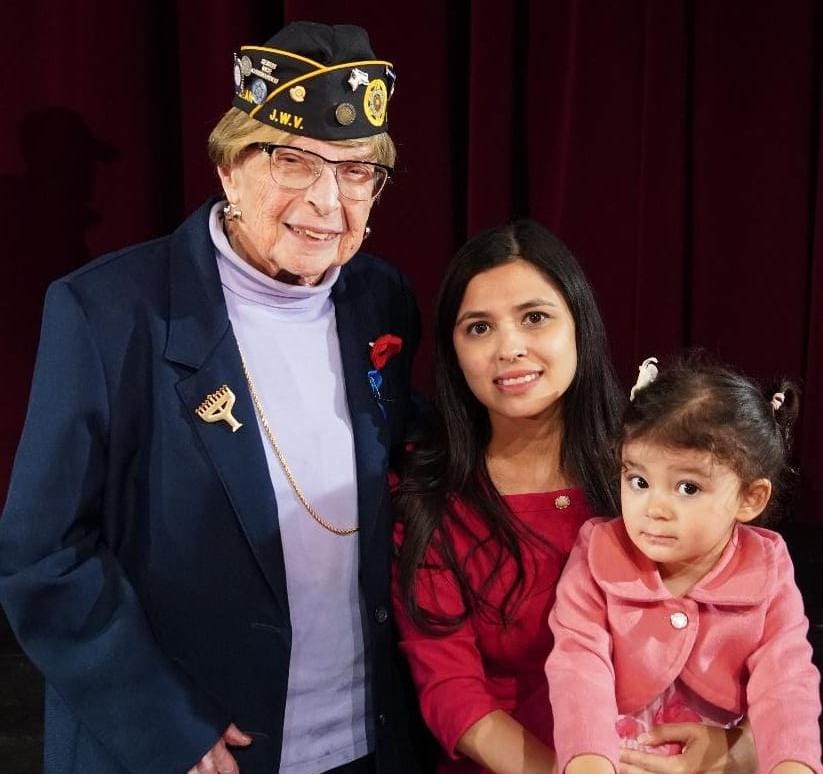
Meanwhile, in the U.S. during the war, May Brill worked hard to support the Navy without getting any recognition because she was a woman. One of seven children, Brill grew up in a poor neighborhood in south Philadelphia. Even though they weren’t wealthy, she explained how her mother still gave her a small allowance with the condition that she set some aside for charity work.
“I had two brothers, one in the Army and one in the Coastguard, and I thought, ‘what’s the matter with me? It’s my country too’, and just because I am female did not mean that I did not want to serve my country,” Brill stated.
She described how she was sent on a train to Oakland, California, to a Naval Base where there was a female barracks. They were then bussed to the base to work side-by-side with the men, sending supplies and arms to soldiers.
“Women were not considered part of the military. We were WAVES (Women Accepted for Volunteer Emergency Service),” she explained.
However, after Brill was discharged, she was classified as part of the Navy and not just a WAVE. She came home and received the same entitlement as any Navy Veteran, which was to go to college for however long you had served.
“When I registered for the university, a girl came up to me and said, ‘Oh, you are a veteran? So am I!’ and we became friends. She introduced me to her boyfriend’s friend, and that’s how I met my husband,” Brill added.
Brill turned 100 years old this year, and her birthday, along with Sherman’s 105th, Auerbacher’s 90th, and Eleanor Roosevelt’s 140th, were all celebrated in unison at the end of the event. Each speaker was presented with a cake, and the auditorium serenaded them with a rendition of ‘Happy Birthday’.
